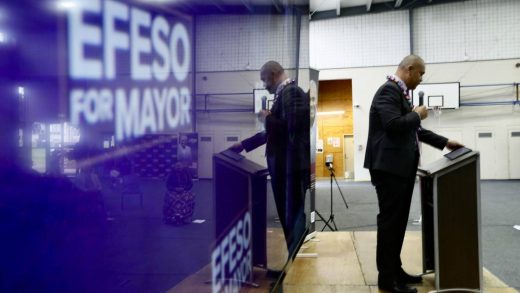
Janet Wilson is a freelance journalist who has also worked in communications, including with the National Party in 2020.
OPINION: If the notion of caucus confidentiality creates a collective political omerta among elected representatives, a cabinet reshuffle is one way to draw back that curtain of silence and delve into how internal politics influences the external.
More than a game of political snakes and ladders, demotions and promotions allow voters to assess whether Prime Minister Chris Hipkins this week achieved his aim of “stability with renewal”.
With only three new members entering Cabinet, the answer was more stability than renewal. However, this reshuffle did reveal the tensions within caucus as to who was rewarded or not, with Cabinet rankings sometimes belying the importance of their portfolios.
READ MORE:
* Michael Wood ‘essentially’ already minister of Auckland in transport role, mayor says
* Nanaia Mahuta says she was happy to step aside as local government minister after Three Waters negativity
* Chris Hipkins’ first Cabinet reshuffle a game of two halves
* The winners and losers in Prime Minister Chris Hipkins’ Cabinet reshuffle
* The minister for Auckland: Michael Wood’s surprise new role
Nanaia Mahuta dropping seven places in the rankings when she remains the Minister of Foreign Affairs – a senior position usually reserved for the front bench – is a case in point.
Alongside that portfolio, Mahuta is also minister for disarmament and arms control and associate minister for Māori development, yet she sits at a lowly 16th out of 20 in the Cabinet rankings, having lost local government to incoming minister Kieran McAnulty.
We will never know if Hipkins’ predecessor would have demoted her foreign minister, given the chance to execute the reshuffle, but we do know that Mahuta last year forced Jacinda Ardern into a humiliating defence of her minister’s actions.
ROBERT KITCHIN/Stuff
Nanaia Mahuta lost the local government portfolio and slid down the rankings in this week’s Cabinet reshuffle (File photo)
It was reported this week that documents released under the Official Information Act show Mahuta proceeded with attempts to entrench provisions preventing the four water entities created to run water services for the country from privatising their operations or assets. This was despite being repeatedly warned against it by officials. Even before the idea was floated at a November caucus meeting, Mahuta was meeting with Green Party member Eugenie Sage, who moved a supplementary order paper under urgency. That caught senior Labour Party members unaware and left Ardern explaining and losing.
The denouement of those shenanigans hit Mahuta this week.
Despite Hipkins promising a reset of Three Waters, he was at pains to say that it wasn’t going to be scrapped altogether.
But Mahuta’s demotion does allow the freshly-minted Prime Minister to strip the Three Waters legislation of its co-governance imperatives, something that the former minister would never have countenanced.
If Mahuta was effectively told to sit in caucus’ naughty corner, then Michael Wood was given a gold star, rising nine places in the rankings to seven, which saw him retain the weighty portfolios of immigration, transport and workplace relations, and gain associate finance as well as becoming minister for Auckland.
His appointment to the latter post is perplexing, given that as commentators have already pointed out, he bungled the introduction of a cycle lane on the Harbour Bridge. There’s also a dichotomy between the way his colleagues in caucus perceive him and how ordinary punters do.
Ricky Wilson/Stuff
New Deputy Prime Minister Carmel Sepuloni and Michael Wood, appointed this week as Minister for Auckland, at a press conference on the region’s flooding.
While those on the left are happy to ascribe to Wood Hipkins’ old moniker of Mr Fix-it, others would say that his ideological approach to policy makes him didactic and hard-line.
In any event, his appointment as the minister for all things Tāmaki Makaurau pits him against the bloodied-but-not-beaten other so-called Auckland Mr Fix-it, Wayne Brown.
So-called because Brown’s lack of political instincts was on display this week when he was accused of failing to call a state of emergency fast enough when a record-breaking 249mm of rain fell in 24 hours.
And while the memes flew fast after Saturday’s press conference, which showed Brown placing blame everywhere but himself, and Hipkins looking on horrified, the last laugh might rest with the prime minister.
Because by week’s end, Brown’s own mouth had further eroded his reputational standing, leaving his deputy to front for him with media, which posed the question of who is Auckland’s real leader?
The answer to that could well be Minister for Auckland Michael Wood.
While Brown wasted his crisis, the PM didn’t waste his. Hipkins had the chance to go back to the Emergency Management Bill, which has been in development since late 2021, and strengthen a clause which would allow the National Emergency Management Agency to intercede if local leaders fail to act.
Given Brown’s lack of interaction with the community he serves, all Wood has to do now is turn up, listen and act.
John Cowpland/Stuff
Janet Wilson: “While those on the left are happy to ascribe to Wood Hipkins’ old moniker of Mr Fix-it, others would say that his ideological approach to policy makes him didactic and hard-line.”
The reshuffle ticked all the diversity boxes, but didn’t portend the new broom Hipkins is pledging when it comes to policy. With the admission that the number one thorn in Labour’s side, Three Waters, will remain in some form, any major policy reforms appear less likely.
If Labour isn’t prepared to kill its most electorally toxic baby, that means caucus infighting will have begun as ministers battle it out to save their own precious spawn.
Which could mean that when it comes to policy reform, it’ll be less new broom, more sweep under the carpet.


